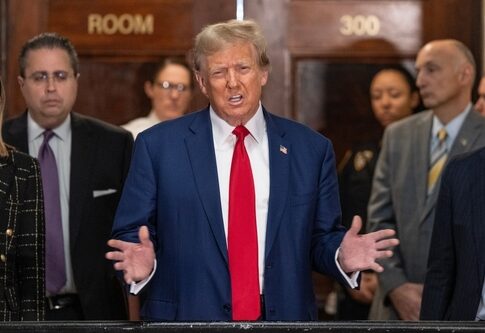The Supreme Court’s recent decision to maintain a gag order on Donald Trump raises significant questions. Justice Alito denied lifting the gag order, marking it his second time enforcing it this year. What is the balance between free speech and trial integrity?
Recent Supreme Court Decision
The Supreme Court declined to lift the gag order imposed on Donald Trump during his trial for falsifying business records, reinforcing the judiciary’s stance on maintaining trial integrity. The gag order limits Trump’s public statements that could influence jurors and court staff amid his 34-count felony case, a measure initially imposed before Trump’s conviction related to payments to Stormy Daniels. This decision underscores the court’s commitment to ensuring that justice proceeds without external bias.
Justice Samuel Alito’s role in handling the denial highlights the Supreme Court’s priority in minimizing disruptions in the legal process. This is the second time this year Alito and his colleagues upheld such restrictions in Trump’s legal battles, showcasing a consistent approach to preserving truth-seeking environments in the court of law. Trump’s legal team remains active, challenging these restrictions as infringing on First Amendment rights, sparking ongoing debates about free speech limits for high-profile figures.
U.S. Supreme Court rejects bid to lift gag order on Donald Trump in New York hush-money case https://t.co/CMxuxCsWSr
— Law & Crime (@lawcrimenews) December 9, 2024
Judicial Fairness and Gag Orders
Gag orders, such as the one imposed by Judge Juan Merchan, are not uncommon in high-profile cases where public interest and media coverage risk prejudicing legal proceedings. While Merchan has partially lifted parts of the gag order, core provisions remain to protect jury integrity and court personnel. Trump’s camp argues that these limitations infringe on constitutional rights, suggesting misuse of legal tools to silence dissent. This controversy brings to light ongoing challenges in balancing fair trial standards and free expression.
“Raw politics has infected this process,” said President Joe Biden.
Moreover, the involvement of Missouri Attorney General Andrew Bailey, who attempted to challenge the gag order highlights the political dimensions underlying the legal process. These actions reflect wider implications for judicial practices nationwide amidst politically sensitive cases, indicating a broader debate over legal rights during criminal proceedings. As Trump’s legal challenges stretch beyond New York, involving cases in Georgia and other states, the ongoing developments continue to draw significant public and legal interest.
The Supreme Court once again declined to the lift Manhattan Judge Juan Merchan's gag order on President-elect Donald Trump over his trial on charges of falsifying business records that resulted in a conviction in May on 34 felony counts. https://t.co/j3zJZM1dVq
— NEWSMAX (@NEWSMAX) December 9, 2024
Future Implications of the Gag Order
The court’s decision not only affects Trump’s current legal standing but sets a precedent in handling high-profile cases. The implications are far-reaching, as Trump also navigates potential criminal prosecutions in other jurisdictions. Manhattan District Attorney Alvin Bragg signaled intentions to uphold the conviction, with potential sentencing ramifications aligned with future political developments.
This situation raises essential discussions about balancing political figures’ rights with judicial integrity and fairness. As Trump’s legal saga weaves its path through the courts, the Supreme Court’s actions may pave the way for future cases involving high-profile figures, reinforcing the pillars of fair trial standards. Analysts will watch closely to decipher how these tensions play out and what they mean for judicial processes nationwide.


